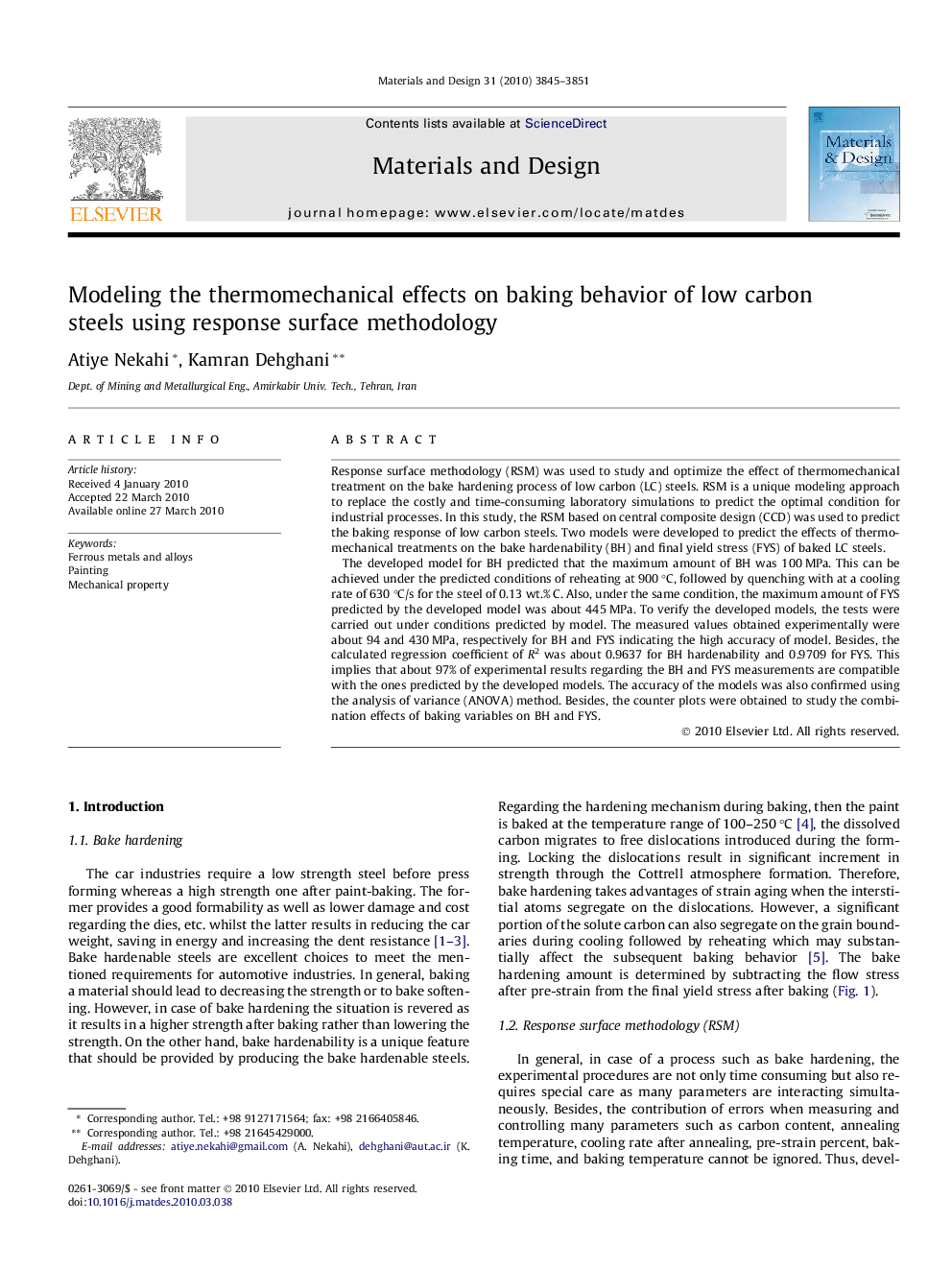| Article ID | Journal | Published Year | Pages | File Type |
|---|---|---|---|---|
| 831900 | Materials & Design (1980-2015) | 2010 | 7 Pages |
Response surface methodology (RSM) was used to study and optimize the effect of thermomechanical treatment on the bake hardening process of low carbon (LC) steels. RSM is a unique modeling approach to replace the costly and time-consuming laboratory simulations to predict the optimal condition for industrial processes. In this study, the RSM based on central composite design (CCD) was used to predict the baking response of low carbon steels. Two models were developed to predict the effects of thermomechanical treatments on the bake hardenability (BH) and final yield stress (FYS) of baked LC steels.The developed model for BH predicted that the maximum amount of BH was 100 MPa. This can be achieved under the predicted conditions of reheating at 900 °C, followed by quenching with at a cooling rate of 630 °C/s for the steel of 0.13 wt.% C. Also, under the same condition, the maximum amount of FYS predicted by the developed model was about 445 MPa. To verify the developed models, the tests were carried out under conditions predicted by model. The measured values obtained experimentally were about 94 and 430 MPa, respectively for BH and FYS indicating the high accuracy of model. Besides, the calculated regression coefficient of R2 was about 0.9637 for BH hardenability and 0.9709 for FYS. This implies that about 97% of experimental results regarding the BH and FYS measurements are compatible with the ones predicted by the developed models. The accuracy of the models was also confirmed using the analysis of variance (ANOVA) method. Besides, the counter plots were obtained to study the combination effects of baking variables on BH and FYS.
